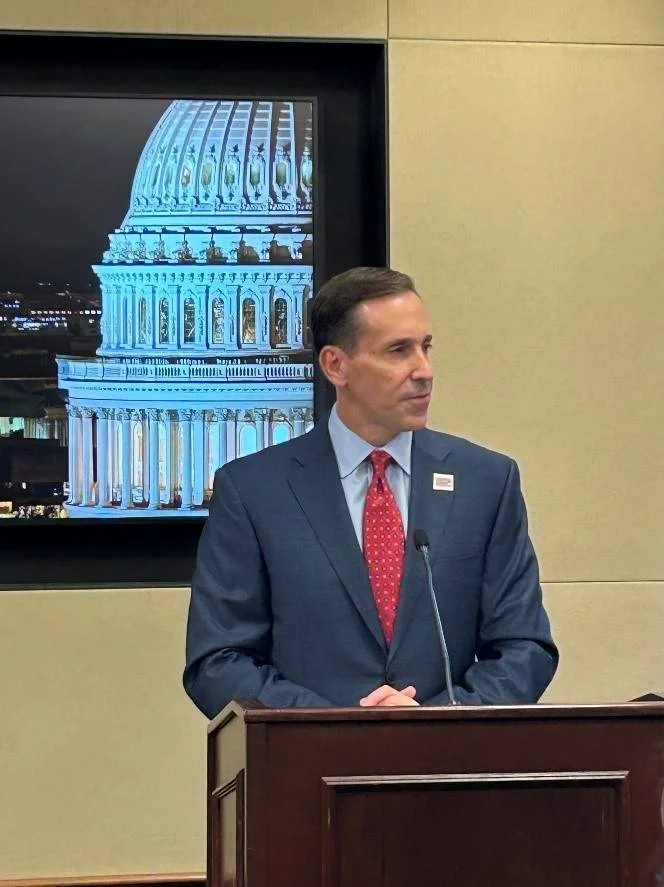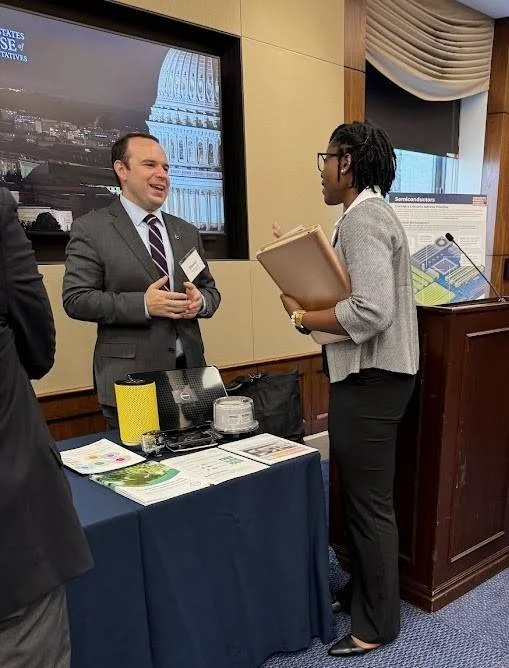The science of chemistry is all about connections and bonds. That connection was on full display during a Congressional reception Tuesday night in the House Rayburn building to spotlight the ways in which chemistry powers technology and supports electronics manufacturing.
The event was hosted by the American Chemistry Council, in coordination with other members of the Congressional Chemistry Caucus, including the Alliance for Chemical Distribution, American Chemical Society, and the American Cleaning Institute.

“Quite simply, developing and manufacturing electronics would not be possible without chemistry. Making everything from semiconductors to circuit boards, to device screens requires a multitude of chemicals – many of which are made by the exhibitors in the room here today,” Chris Jahn, CEO, American Chemistry Council explained to attendees. “In the room today are nearly 15 companies who are shaping the future of technology in the United States and making us competitive in the global economy.”
The demand for chemistry is expected to rise with the U.S. investing more than $50 billion through the CHIPS Act to help boost semiconductor production.

“Our office is really looking at everything from chemicals to components to strengthen our supply chains. We’re looking at [tech products] and which chemicals go into these things. We have a globally competitive edge in making things in this country, and we want it to happen in America,” said Zack Valdez, Advisor, Office of Manufacturing and Energy Supply Chains, U.S. Department of Energy.
"Microchips are the foundation of so much technology - but as many of you know, chemicals are the foundation of everything,” Scott Shepard, CHIPS for America added. “Chemicals go into nearly all manufacturing and so at the CHIPS R&D Office we’re focusing on the chemical challenges of semiconductor manufacturing.”

Representatives from the American Chemistry Council; Arkema; Celanese; Covestro; Chemours; Dow; Ecolab; IPC International Inc.; Milliken; Nouryon; Univar were on hand with displays to explain how chemistry is used to support the electronics we use and rely on every day.
In addition to the product displays, the results of a new report from ACC’s economic department were shared at the reception to highlight the essential role chemistry plays when it comes to manufacturing semiconductors, printed circuit boards, display materials, and other electronic components.
The report points out that without chemistry, electronics production would be impossible, and that more chemistry will be needed to help bring the manufacture of electronics back to the U.S.
According to the report:
- 1 out of 10 dollars’ worth of materials used to produce electronic components is spent on chemistry.
- 500 different chemistries are used to make a single semiconductor chip.
Increasing America’s capacity to manufacture electronics, and the chemistry needed to support it, go hand in hand. That’s why policymakers must adopt smart, pro-growth policies that recognize the importance of developing and building electronics in U.S. and the chemical supply chain needed to support it.
Through events like these, the Chemistry Caucus provides opportunities for policymakers and industry leaders to convene, foster dialogue, and collaborate on pressing issues at the intersection of chemistry and society. The Caucus is co-chaired by Sen. Capito (R-WV); Sen. Coons (D-DE); Sen. Daines (R-MT); Sen. Peters (D-MI); Rep. Bishop (D-GA); Rep. Moolenaar (R-MI).
Stay tuned for more events to come this year!